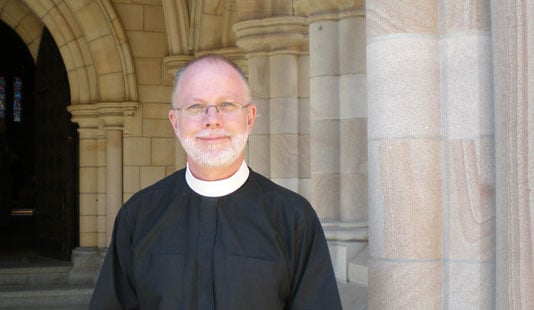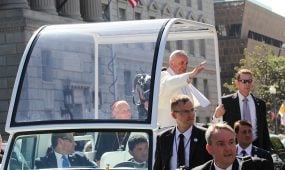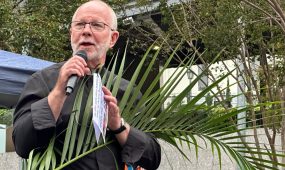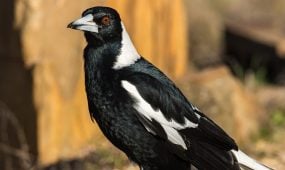Solidarity in the age of me
Reflections
“To love is to want the best for the loved one, to see them flourish and live life to the full. Love leads to empathy and empathy leads to solidarity and solidarity leads to action on behalf of the other and for the other,” says The Very Rev’d Dr Peter Catt

What is the greatest gift?
Could it be the world itself – the oceans, the meadowlark,
the patience of the trees in the wind?
Could it be love, with its sweet clamor of passion?
Something else – something else entirely
holds me in thrall.
That you have a life that I wonder about
more than I wonder about my own.
That you have a life – courteous, intelligent –
that I wonder about more than I wonder about my own.
That you have a soul – your own, no one else’s –
that I wonder about more than I wonder about my own.
So that I find my soul clapping its hands for yours
more than my own.
Mary Oliver, ‘What is the greatest gift?’, in Red Bird
In the context of our Western culture Mary Oliver’s poem is a difficult read. It promotes self-effacement. And, as we know all too well, self-effacement can be weaponised by those who wish to oppress or exploit. So, it is a poem that we need to read with care.
Having acknowledged that self-effacement can be exploited, I think it is possible to move on to see that the poem is also likely to cause discomfort because we live in the age of me, and so it is a radical thing to even contemplate that we might ‘wonder more’ about another than about ourselves.
The age of me compels us to be self-centred. And so, we regularly hear the complex and intermeshed notion of ‘rights’ – being reduced to the simplistic, “I should be able to do anything and everything I want.” This reductionist view of rights has been on display in the farcical arguments against the wearing of face masks during COVID-induced lockdowns.
Likewise, in many quarters the rich and relational purpose of Christianity has been reduced to individual salvation: cheapened to getting one’s ticket to heaven.
Advertisement
In such a culture solidarity is an almost impossible concept to grasp because we see everything and everyone as separate. It is one of the reasons we are having so much trouble dealing with the changing climate. Because the focus is on me and now, there is little or no regard for the world’s poor, for the other creatures that inhabit the beautiful planet, or even our own grandchildren having been others. Similarly, the incredibly complex issues that surround the idea of Voluntary Assisted Dying have been reduced to, “It’s my life and I will die when I want to.”
At the heart of the Christian message, as I have received it, is the idea that love should be the measure of all things.
To love is to want the best for the loved one, to see them flourish and live life to the full. Love leads to empathy and empathy leads to solidarity and solidarity leads to action on behalf of the other and for the other.
Jesus’ invitation to love our neighbours as ourselves (Matthew 22.37-39) implies that we need to learn how to love ourselves in order to love others. It seems to me that this twist in the call to love provides the unexpected key needed to unlock the liberating truth of Mary Oliver’s poem. We start from the position of good self-regard when we enter into ‘wonder’ at the life of another.
Advertisement
The philosopher Theodor Adorno expressed it like this:
“We become free human beings not by each of us realizing ourselves as individuals, but rather in that we go out of ourselves, enter into relation with others, and in a certain sense relinquish ourselves to them.” (Critical Models: Interventions and Catchwords, 225, p.241)
All of this helps me make sense of Jesus’ words that those who lose their life will find it (Matthew 10.39).
First published in the June 2021 edition of The Eagle, the magazine of St John’s Cathedral (with image provided by Mia Mia). Read the latest edition of The Eagle online.






